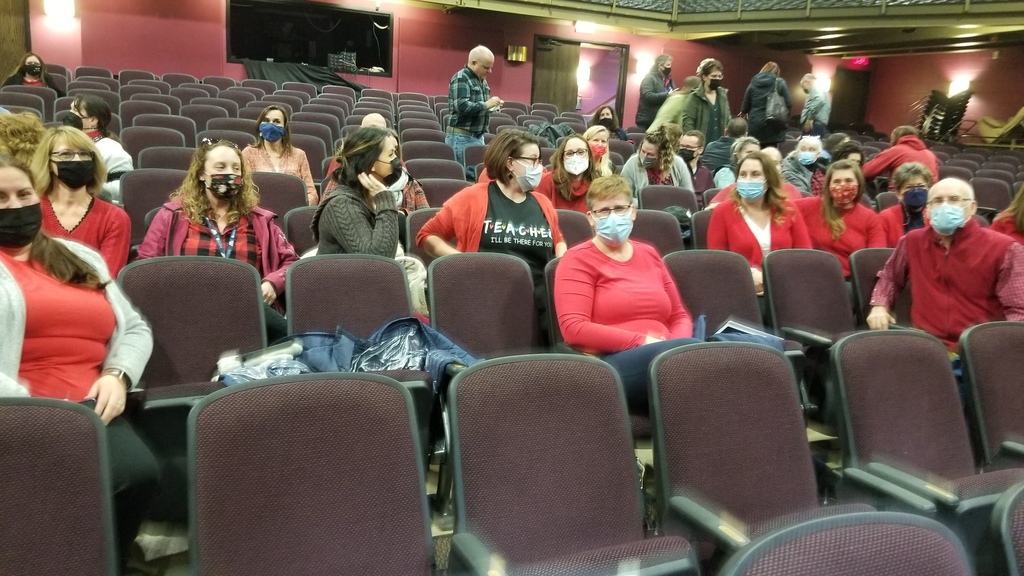
HOULTON, Maine — Frustrations over contract negotiations bubbled over Monday evening at the regular monthly meeting of the RSU 29 school board.
Although the topic was not on the agenda for discussion, it arose during the public comments portion of the meeting when Mike Kenney, representative for the teacher’s association, spoke to the board.
“I would like to raise the issue with the board that some members did not understand why teachers showed up in red (at last month’s board meeting),” Kenney said. “We are here wearing “Red for Ed” to help you understand our dissatisfaction that we have been working for 250 days without a (new) contract.”
The issue resurfaced later in the board meeting, after a lengthy presentation by Joe Fagnant, facilities manager for the district, in which he talked about the many long-term projects that the district should be thinking about and the costs associated with them.
Julia Thompson, student representative to the school board, asked board Chairman Fred Grant why more of an effort was not being made to invest in the teachers.
“Teachers, from a student’s perspective, are the most important part of school,” Thompson said. “Obviously the buildings need to not be falling apart, but I don’t understand why they (teachers) are not more central to the conversation.”
Typically, contract negotiation matters are not discussed during open school board meetings. But Thompson’s question prompted the board chairman to give Kenney the opportunity to speak more on the teacher’s union side of the negotiations.
The union met with the board a year ago to begin negotiations for new contracts and at first, those meetings were fruitful, Kenney said.
“We thought we were going to have a contract settled on time, which is really unusual,” Kenney said. “At some point the conversations broke down and we felt we were not going to make any more progress.”
The school board approved a contract, but the teacher’s union voted it down.
“We had asked for remote learning language to be included because of the impact COVID has had on the teachers,” Kenney said. “We were also told that additional staff would be hired to help out, and while some have, it has been insufficient.”
Among other things, the group wanted a reduction in the number of steps a teacher must go through to advance on the pay scale; a desire to be paid per-diem for the extra work related to students who have to learn remotely; and an adjustment in teachers’ salaries, Kenney said.
The board worked diligently with the negotiating team in October to create a contract that provided a reduction in steps, an increase in salaries of 15 percent over three years, a change in vacation time and an increase in (compensation) for classes, Chairman Grant said.
“The reality is, we have a contract that was approved,” Grant said. “Our board voted at the beginning of November so we could move it on. We found out a month later that they (teachers) voted it down. The board’s view is that teachers should be given a raise every single year and we provided a 15 percent increase, which for some reason isn’t enough.”
Until a new agreement is approved, teachers will operate under the most recent contract.







